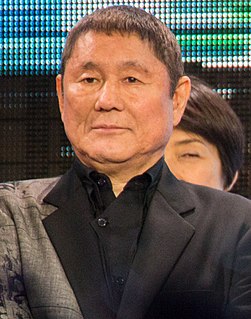A Quote by Steven Soderbergh
My first three movies, I didn't start editing until we were finished shooting. That's unthinkable to me now.
Related Quotes
The reason the first three Star Wars movies were so terrific, and the second three sucked so bad, is actually very simple. The first three were about rebels, shooting guns and driving fast, and speaking with American accents. The second three were about politicians, discussing treaties and holding court, and speaking with British accents.
Comparing filmmaking to a plastic model, shooting is the process where you mold and color each piece, and editing is where you build a finished whole from the pieces you molded and colored. Obviously, the latter is the most enjoyable part in the making of plastic models, so editing is the process in filmmaking I enjoy the most. But at the same time, editing can be a painstaking task, too.
All three parts of filmmaking [writing, shooting, editing] contribute to rhytm. You want the script to be a tight as possible, you want the acting to be as efficient as possible on the set, and you have enough coverage to manipulate the rhythm in the editing room, and then in the editing room you want to find the quickest possible version, even if it's a leisurely paced film. I definitely in filmmaking more and more find writing and directing a means to harvest material for editing. It's all about editing.
I write first drafts feverishly fast, and then I spend years editing. It's not that sentence-by-sentence perfectionist technique some writers I admire use. I need to see the thing, in some form, and then work with it over and over and over until it makes sense to me - until its concerns approach me, until its themes come to my attention. At that editing stage, the story picks itself and it's just up to me to see it, to find it. If I've done a good job, what it all means will force me to confront it in further edits.
I watched a lot of movies from all over the world. The Russians were very good at editing. They were specialists in editing. The Man with a Camera, if you know that movie, is incredible. I still don't understand how it works. It's a movie with no script, no actors and still it works. It's really good. It's really about editing.
If you make a film, that magic is not there, because you were there while shooting it. After writing a film and shooting it and being in the editing room every day, you can never see it clearly. I think other people's perception of your film is more valid than your own, because they have that ability to see it for the first time.


































